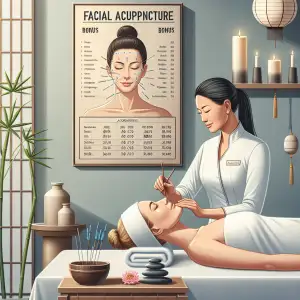Vaseline And Toothpaste For Teeth: Health Hack Or Hoax?
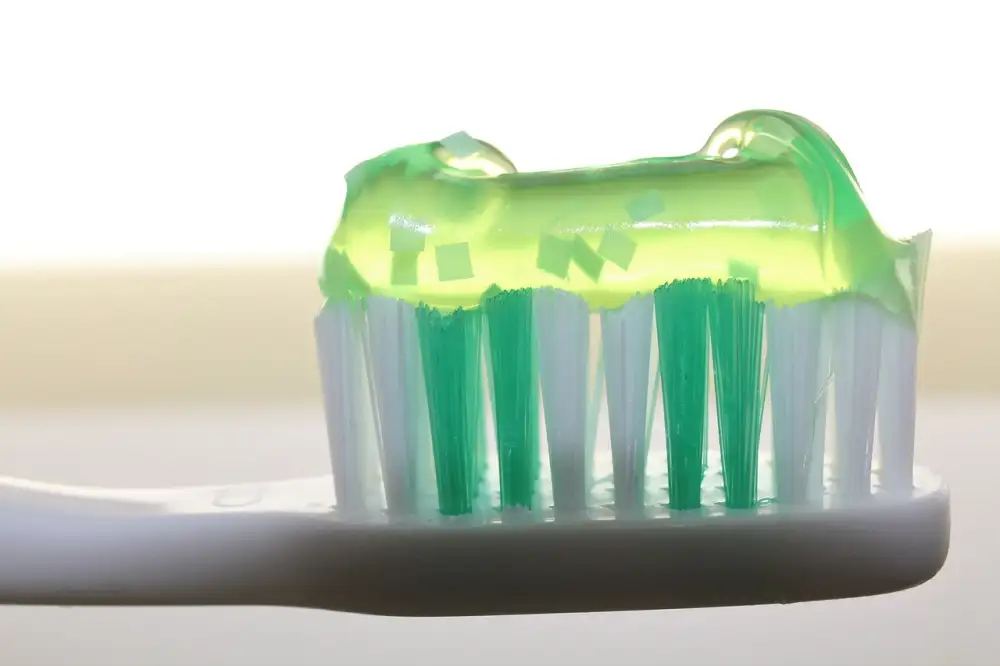
- Vaseline and toothpaste: Not for teeth whitening
- No scientific evidence supports this method
- Potential risks of using vaseline on teeth
- Vaseline is not meant for oral consumption
- Toothpaste alone can't whiten teeth
- Safe and effective teeth whitening options
- Consult a dentist for teeth whitening advice
- Maintaining good oral hygiene is crucial
- Importance of a balanced diet for oral health
- Avoid habits that stain teeth like smoking
Vaseline and toothpaste: Not for teeth whitening
There's a popular DIY teeth whitening trend circulating online: using a mixture of Vaseline and toothpaste. While both are common household products, they should never be used together for teeth whitening. Here's why:
Vaseline, also known as petroleum jelly, is an occlusive agent. This means it creates a barrier on your skin, trapping moisture and preventing dryness. While beneficial for skin, this barrier doesn't offer any teeth-whitening properties.
Toothpaste, on the other hand, is designed for cleaning and freshening breath. Some kinds of toothpaste contain mild abrasives to help remove surface stains, but they don't alter the natural color of your teeth.
Combining these two products won't result in a brighter smile. In fact, it could be harmful. The occlusive nature of Vaseline can trap bacteria against your teeth when used this way. This can lead to plaque buildup, cavities, and gum irritation.
Moreover, some toothpaste ingredients, when combined with the occlusive barrier of Vaseline, might irritate your gums or cause dryness in your mouth.
For safe and effective teeth whitening, consult a dental professional. They can recommend professional treatments or over-the-counter products that suit your needs. Remember, while DIY remedies might seem appealing, your oral health is paramount. It's always best to rely on proven methods and professional advice when it comes to your smile.
No scientific evidence supports this method
There is no scientific evidence to support the idea that using vaseline and toothpaste together can whiten teeth. While some people believe that the combination creates a barrier on teeth that prevents staining or enhances the whitening effects of toothpaste, there is no research to back up these claims.
Toothpaste is designed to clean teeth and help remove surface stains, but it doesn't contain ingredients that can significantly alter the natural color of your teeth. Vaseline, on the other hand, is a petroleum jelly product that acts as a moisturizer and protectant for the skin. It has no known properties that would contribute to teeth whitening.
In fact, applying vaseline to your teeth could actually be detrimental to your oral health. Vaseline is not meant to be ingested and can trap bacteria in your mouth, potentially leading to plaque buildup and cavities. Additionally, consistently coating your teeth with a barrier like vaseline could interfere with the natural remineralization process that helps keep your enamel strong.
Potential risks of using vaseline on teeth
While vaseline is generally considered safe for topical use on the skin, it is not intended for oral use and there are potential risks associated with using it on your teeth.
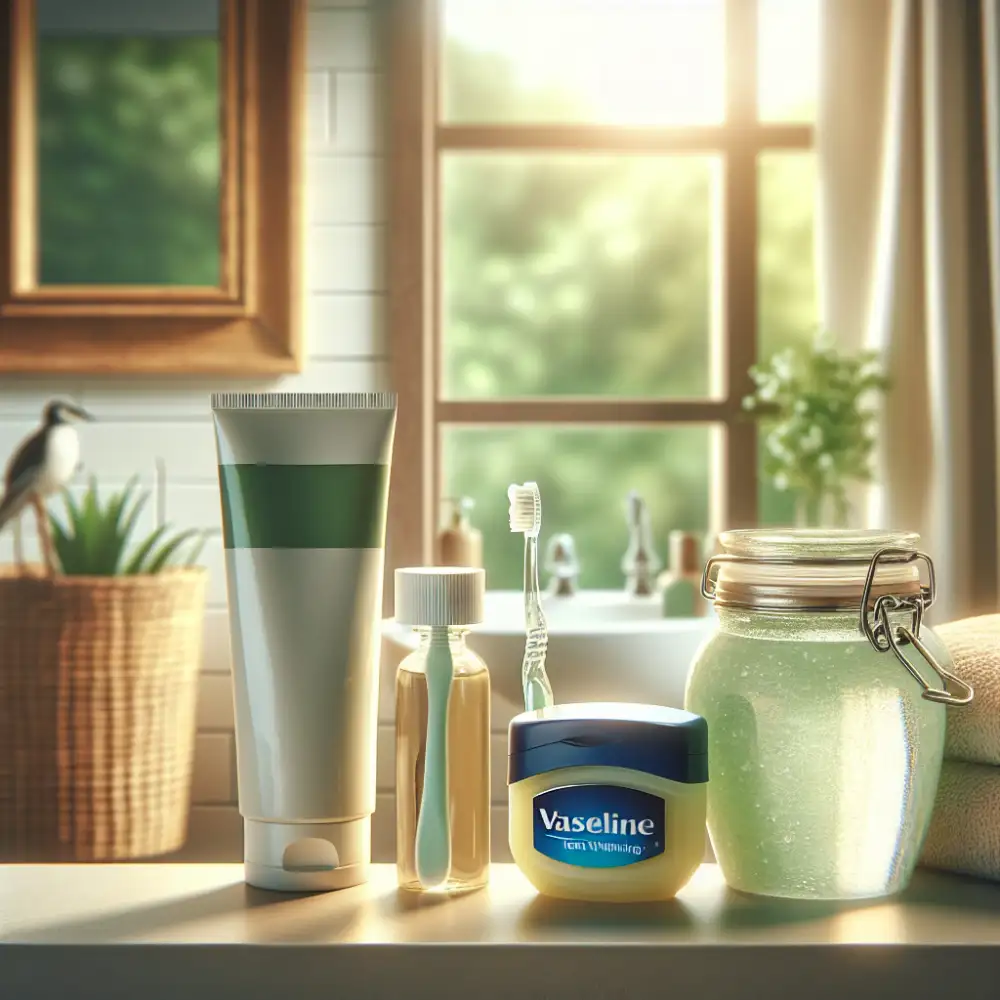
Vaseline is a petroleum jelly, which means it's made from oil. When you put vaseline on your teeth, it can coat them in a thin layer of oil. This can prevent your toothpaste from working properly. Toothpaste needs to be able to adhere to your teeth to clean them effectively. If there's a layer of vaseline in the way, the toothpaste won't be able to do its job.
Vaseline is not water-soluble. This means that it won't dissolve in water. So, when you put vaseline on your teeth, it can stay there for a long time. This can trap bacteria and food particles in your mouth, which can lead to bad breath, cavities, and other oral health problems.
There are much safer and more effective ways to whiten your teeth. If you're concerned about the color of your teeth, talk to your dentist about professional teeth whitening options. They can help you achieve a brighter smile safely and effectively.
Vaseline is not meant for oral consumption
Vaseline, also known as petroleum jelly, is a derivative of the oil refining process. While generally considered safe for topical use on skin, it is not intended for consumption. This means that using Vaseline in any homemade teeth whitening remedies, often seen circulating online, is strongly discouraged. These DIY mixtures often combine Vaseline with toothpaste, baking soda, or other ingredients, applying them to teeth for a supposed whitening effect.
There is no scientific evidence to support the effectiveness of these mixtures. More importantly, the risks associated with ingesting even small amounts of Vaseline outweigh any potential benefits. While not acutely toxic, Vaseline is not digestible and can lead to digestive discomfort, diarrhea, or more serious complications if aspirated.
Toothpaste is designed for cleaning and maintaining oral hygiene, not for use with occlusive substances like Vaseline. Applying Vaseline to your teeth can create a barrier, trapping bacteria and potentially exacerbating dental issues. For safe and effective teeth whitening, consult a dental professional. They can recommend appropriate options based on your individual needs and oral health. Remember, while home remedies might seem appealing, your health is paramount, and it's crucial to rely on safe and proven methods.
Toothpaste alone can't whiten teeth
Many people are searching for that perfect smile with pearly white teeth, and often come across DIY hacks that promise amazing results. One such hack suggests using a mixture of toothpaste and petroleum jelly for teeth whitening. However, this method lacks scientific backing and can be potentially harmful to your oral health.
While toothpaste is designed for cleaning and some contain whitening agents, its abrasive nature is intended to work in tandem with the bristles of your toothbrush, not as a standalone whitening solution. Petroleum jelly, commonly known as Vaseline, is an occlusive agent, meaning it creates a barrier on the surface it's applied to. While this is great for locking in moisture on your skin, it doesn't have any properties that contribute to teeth whitening.
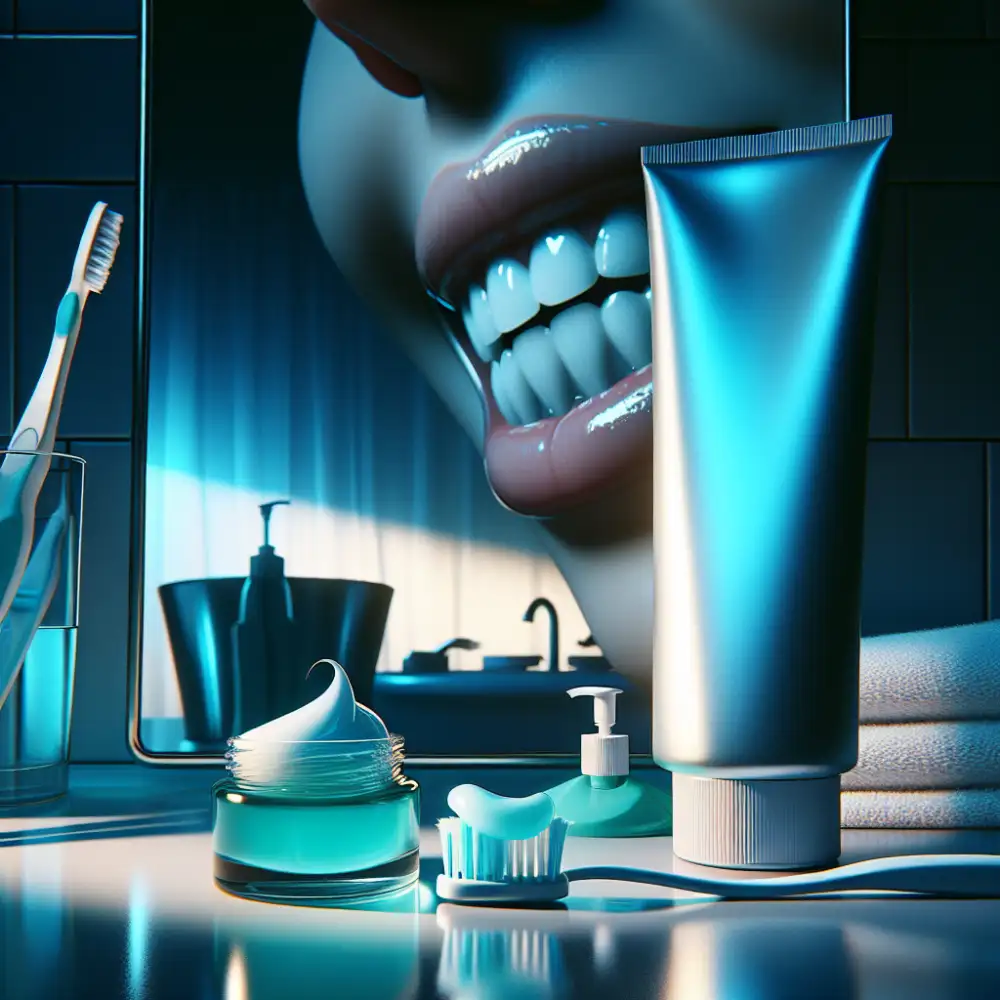
Applying a mixture of toothpaste and petroleum jelly to your teeth might create a temporary illusion of whiteness due to the petroleum jelly's sheen. However, this effect is superficial and doesn't address the underlying causes of tooth discoloration, which often involve stains within the tooth enamel or dentin.
Moreover, leaving petroleum jelly on your teeth for an extended period can create a breeding ground for bacteria, potentially leading to plaque buildup, cavities, and gum irritation. It's important to remember that home remedies should not replace professional dental advice and treatment.
Safe and effective teeth whitening options
While some people online claim that using a mixture of Vaseline and toothpaste can whiten teeth, there's no scientific evidence to support this. In fact, this combination is unlikely to have any whitening effect and could potentially be harmful.
Vaseline, also known as petroleum jelly, is a barrier protectant. It's meant to create a layer on your skin to seal in moisture or protect from external irritants. It doesn't contain any ingredients that can whiten teeth.
Toothpaste, while helpful for cleaning teeth and removing surface stains, is not designed for deep whitening. Some whitening toothpastes contain mild abrasives or low concentrations of peroxide, but these are not potent enough to create a significant change in tooth color when used in combination with Vaseline.
Moreover, applying Vaseline to your teeth can actually be detrimental. It's not meant to be ingested and can trap bacteria in your mouth, potentially leading to oral health issues.
If you're looking for safe and effective teeth whitening options, consult with a dental professional. They can recommend professional treatments or over-the-counter products that are appropriate for your needs and ensure the health of your teeth and gums.
Consult a dentist for teeth whitening advice
While you might come across DIY teeth whitening methods involving Vaseline and toothpaste, it's crucial to approach these with extreme caution. There's no scientific evidence to support the effectiveness of this combination for teeth whitening, and it could potentially harm your teeth and gums.
Here's why you should consult a dentist for teeth whitening advice:
Vaseline is not meant for oral use. It's a petroleum jelly primarily designed for skin protection and can trap bacteria in your mouth, potentially leading to oral health issues.
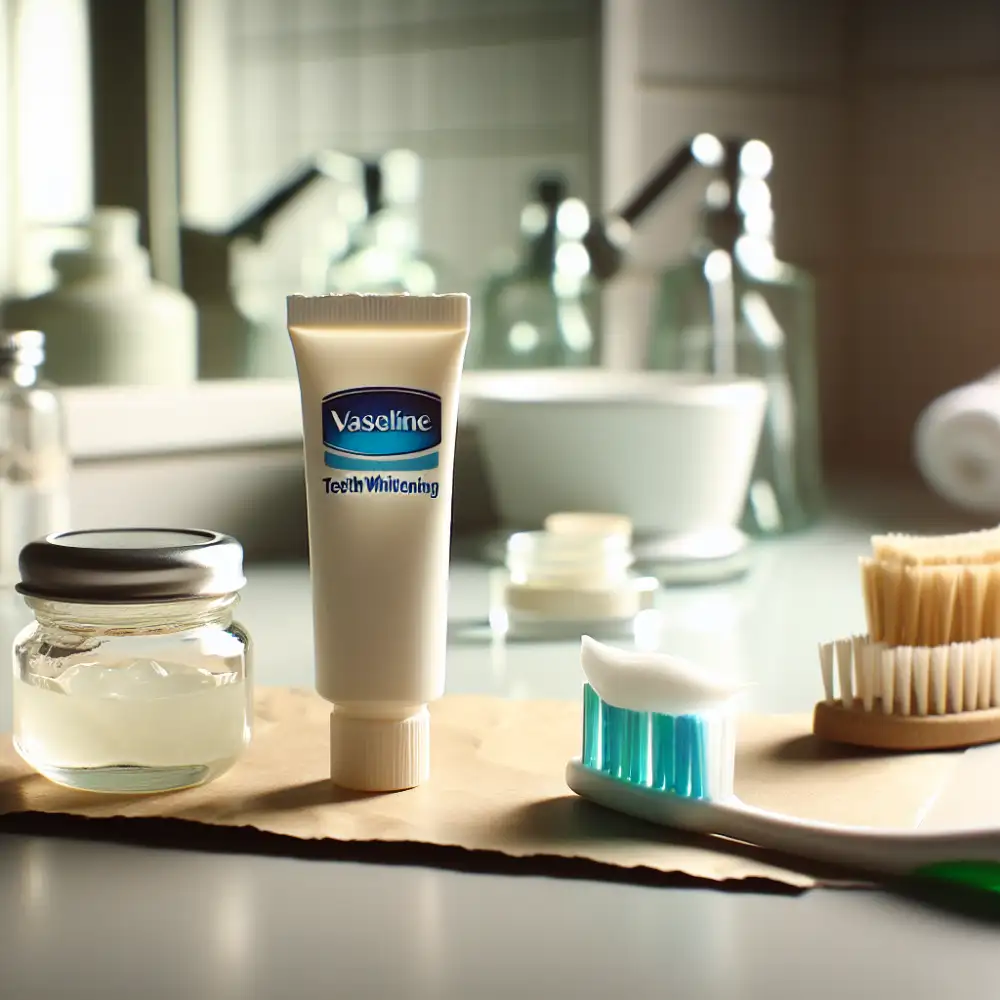
Toothpaste is abrasive. While it helps remove surface stains, using it excessively or with abrasive ingredients can damage your enamel, making your teeth more susceptible to sensitivity and discoloration.
Your dentist can provide safe and effective options. They can assess your oral health, identify the cause of your teeth discoloration, and recommend appropriate whitening treatments tailored to your needs.
Remember, your oral health is paramount. Always consult your dentist before trying any DIY teeth whitening methods, especially those involving products not intended for oral use.
Maintaining good oral hygiene is crucial
Maintaining good oral hygiene is crucial for a healthy smile and overall well-being. It involves brushing your teeth twice a day, flossing daily, and using mouthwash. While vaseline and toothpaste are common household items, they are not intended for teeth whitening and should not be used as a home remedy.
Vaseline, or petroleum jelly, is a moisture barrier that can lock in hydration for the skin. However, it is not meant to be ingested and can trap bacteria in the mouth, potentially harming teeth and gums. Toothpaste is formulated to clean teeth and freshen breath, but its ingredients are not designed to bleach teeth. Using vaseline and toothpaste together as a teeth whitening method is ineffective and could be detrimental to your oral health.
Instead of resorting to unproven home remedies, consult with a dental professional for safe and effective teeth whitening options. They can recommend appropriate treatments based on your individual needs and ensure the health and integrity of your teeth and gums. Remember, maintaining good oral hygiene practices is the foundation for a bright and healthy smile.
Importance of a balanced diet for oral health
A balanced diet plays a crucial role in maintaining good oral health. Just like the rest of your body, your teeth and gums need essential nutrients to stay strong and healthy. A diet rich in fruits, vegetables, and dairy products can provide the vitamins and minerals necessary for strong teeth and healthy gums. Calcium, found in dairy products, leafy greens, and fortified foods, is essential for strong teeth. Vitamin C, abundant in citrus fruits, berries, and tomatoes, helps maintain healthy gums.
| Feature | Whitening Toothpaste | Whitening Strips | Professional Whitening |
|---|---|---|---|
| Effectiveness | Removes surface stains | Removes deeper stains than toothpaste | Most effective for removing deep stains |
| Cost | $ | $$ | $$$ |
| Convenience | Very convenient, part of daily routine | Relatively convenient, requires daily application for a period | Requires a dental appointment |
| Safety | Generally safe when used as directed | Can cause tooth sensitivity if used improperly | Safest when performed by a dental professional |
While a balanced diet is fundamental for oral health, some people seek additional measures for teeth whitening. It's important to note that using vaseline and toothpaste for teeth whitening is not a scientifically proven method and can be potentially harmful. Vaseline is a petroleum jelly that can coat the teeth, creating a temporary illusion of whiteness. However, it doesn't possess any whitening properties and can interfere with the effectiveness of fluoride in toothpaste.
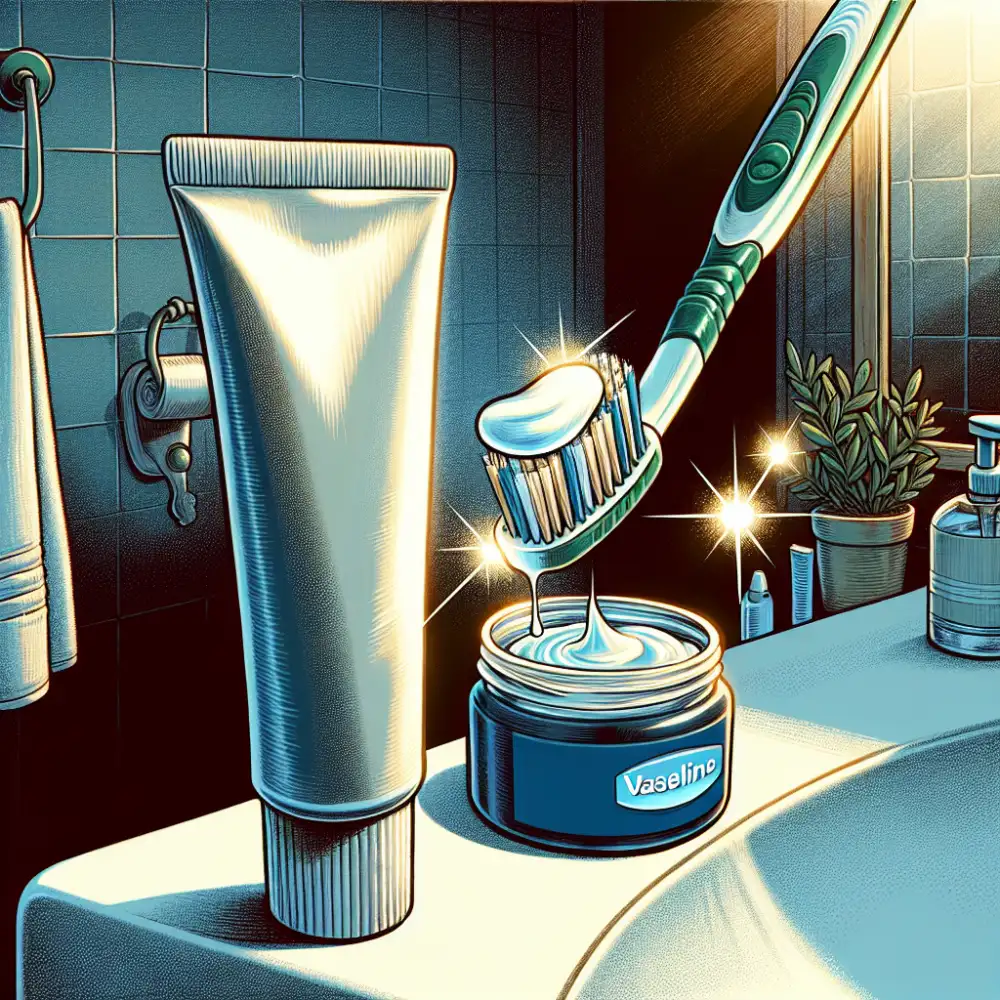
Similarly, using toothpaste alone, even for an extended period, may not yield the desired whitening results. Most toothpaste contains mild abrasives to remove surface stains, but they are not formulated to alter the natural color of your teeth. For safe and effective teeth whitening, it's always best to consult with a dental professional. They can recommend appropriate treatments based on your individual needs and oral health status.
Avoid habits that stain teeth like smoking
While a bright smile is often associated with good oral hygiene, certain habits can significantly dim your pearly whites. Smoking, for instance, is a notorious culprit behind stubborn teeth stains. The nicotine and tar in cigarettes can deeply penetrate the enamel, leading to yellowing and discoloration that worsens over time.
Quitting smoking is the most effective way to protect your teeth from further damage and improve their color. While some turn to home remedies for teeth whitening, it's crucial to approach them with caution. One such method involves mixing toothpaste with vaseline, believing it enhances whitening effects.
However, there's no scientific evidence to support this claim. Vaseline, primarily composed of petroleum jelly, doesn't possess any teeth-whitening properties. Moreover, applying it to your teeth can actually be detrimental. Its greasy texture can trap food particles and bacteria, increasing the risk of plaque buildup and cavities.
Always prioritize your oral health by consulting a dental professional before trying any DIY teeth whitening methods. They can recommend safe and effective options tailored to your specific needs. Remember, maintaining a healthy smile involves a combination of good oral hygiene practices and professional dental care.
Published: 06. 07. 2024
Category: Food


